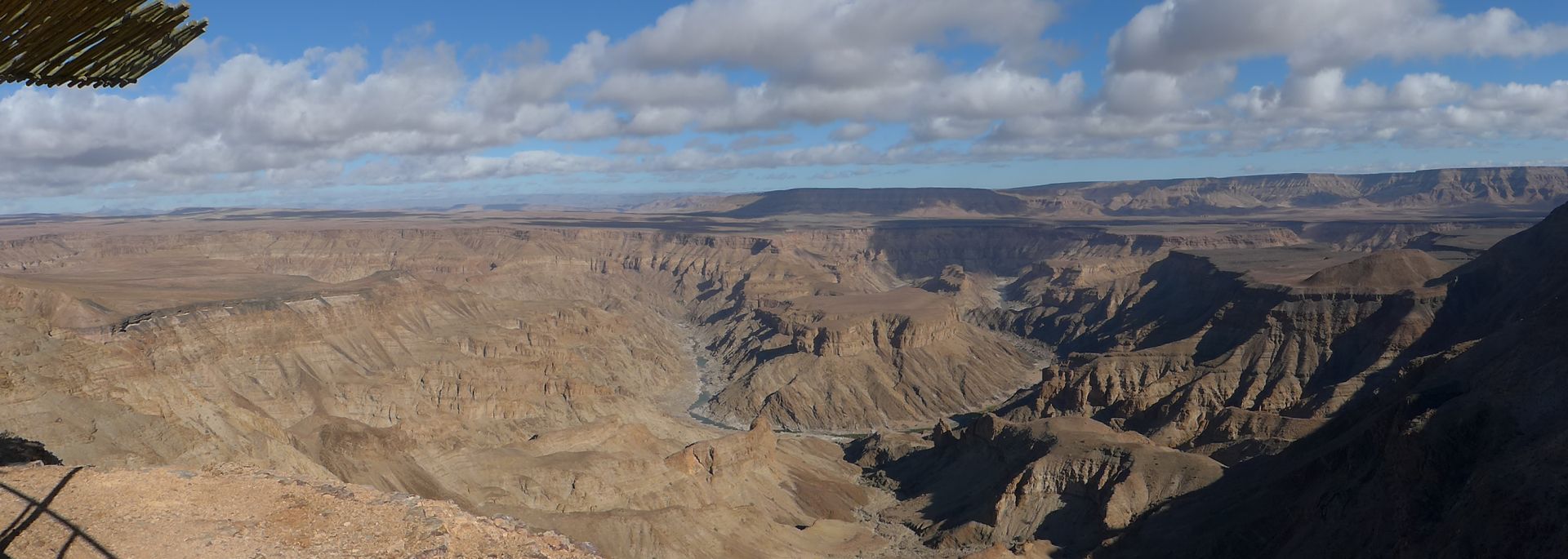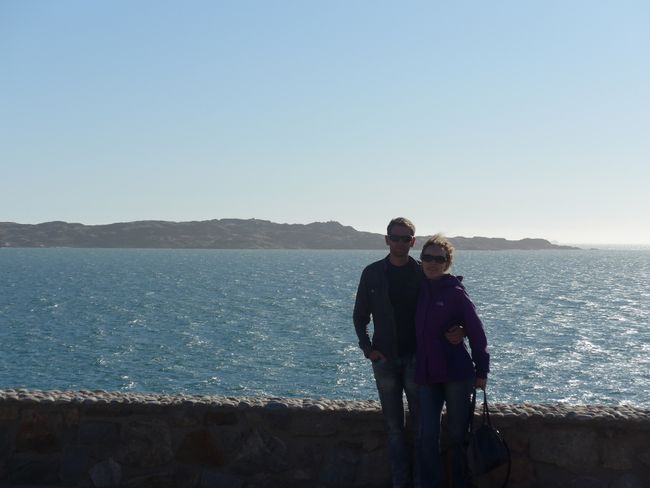Hawke's Bay (New Zealand Part 19)
Foillsichte: 08.01.2019
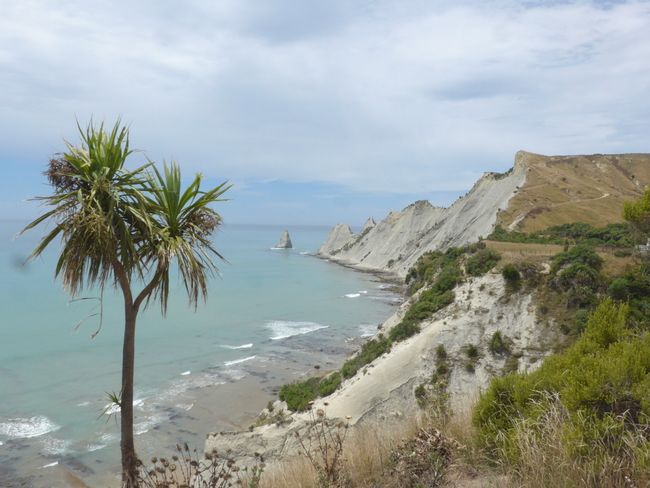
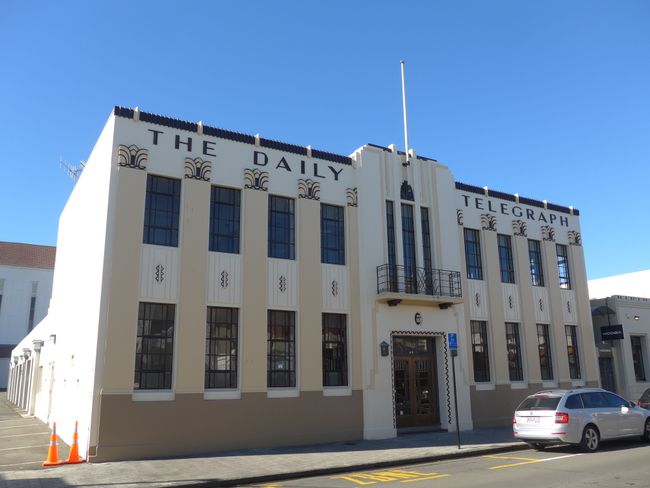
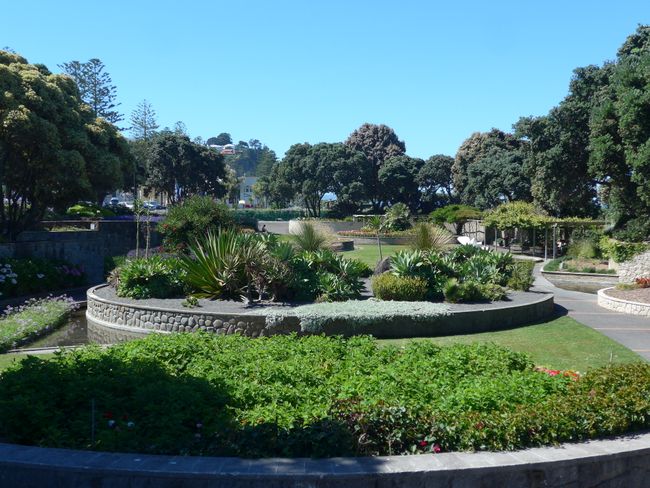
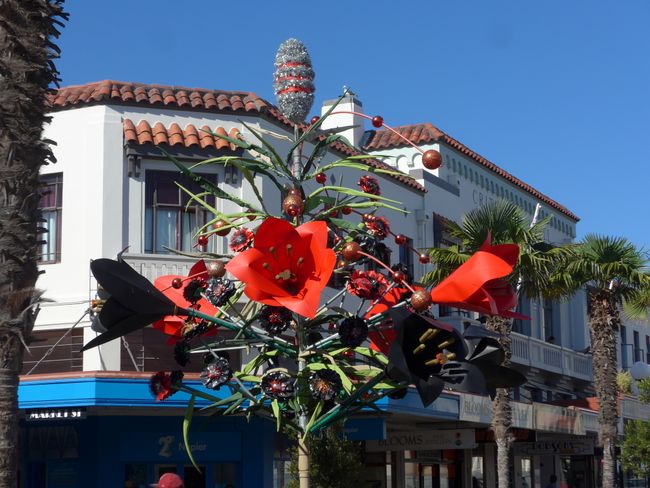
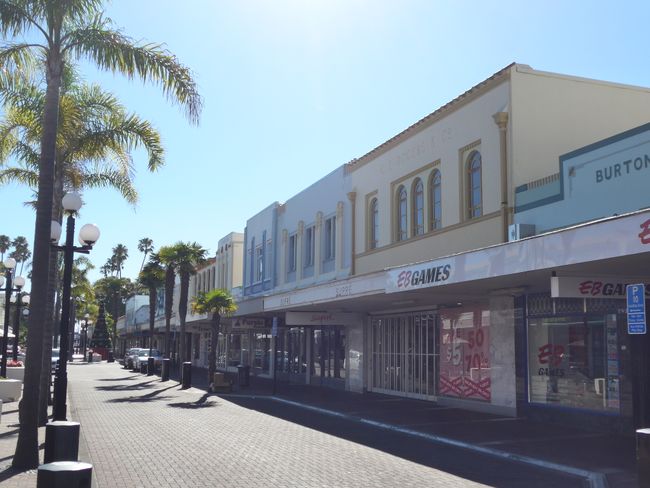
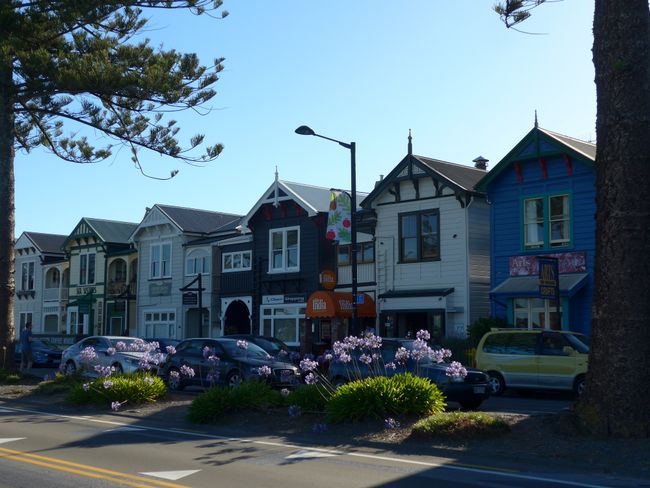
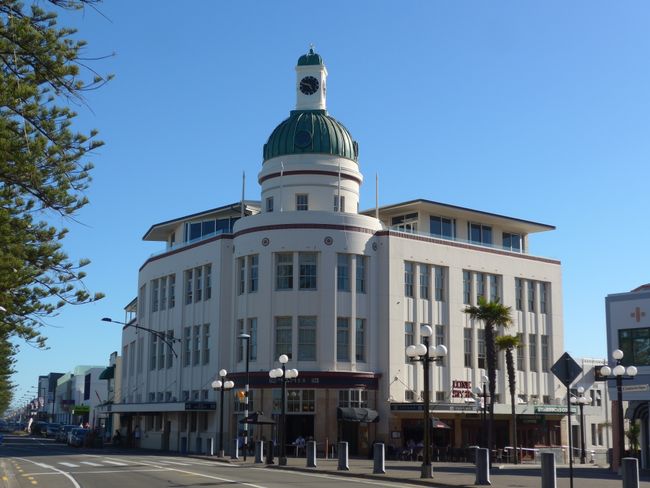

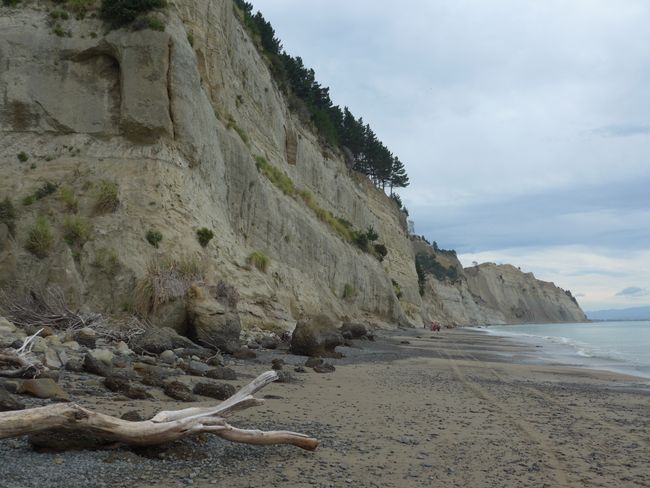
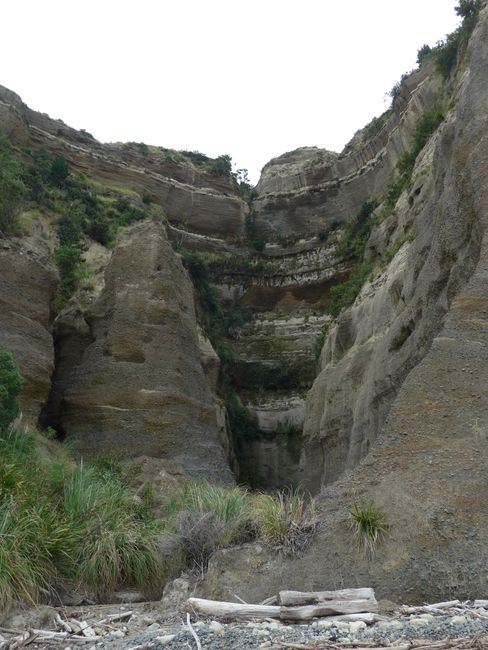
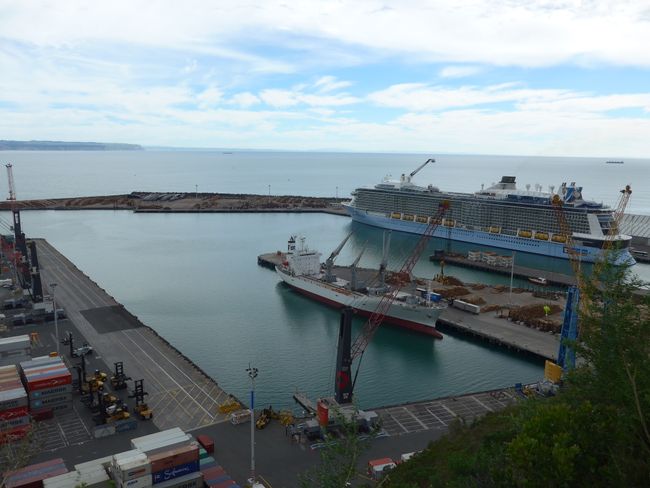
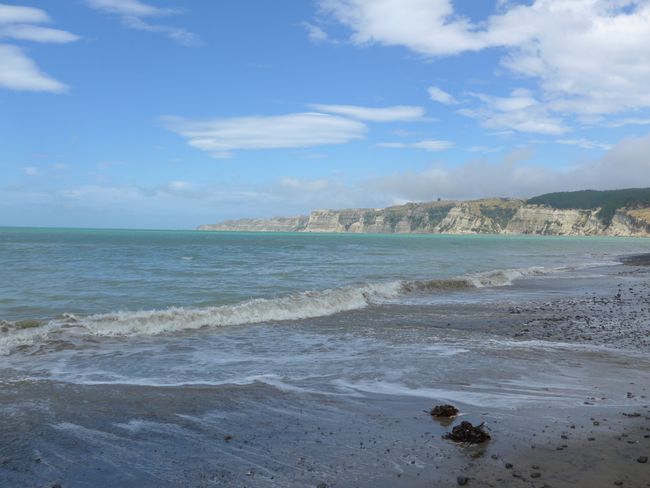
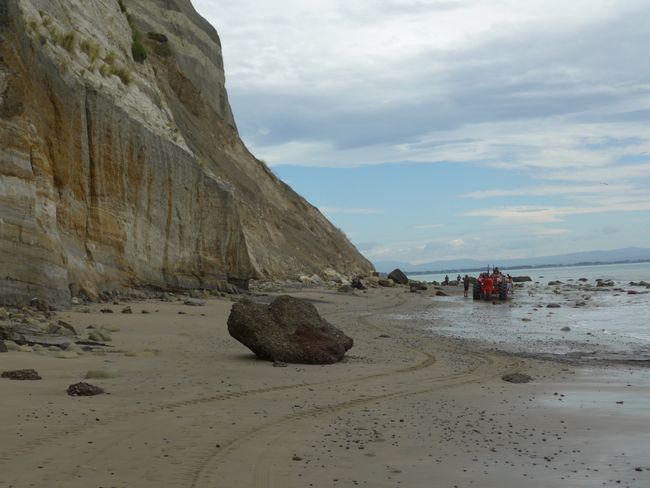
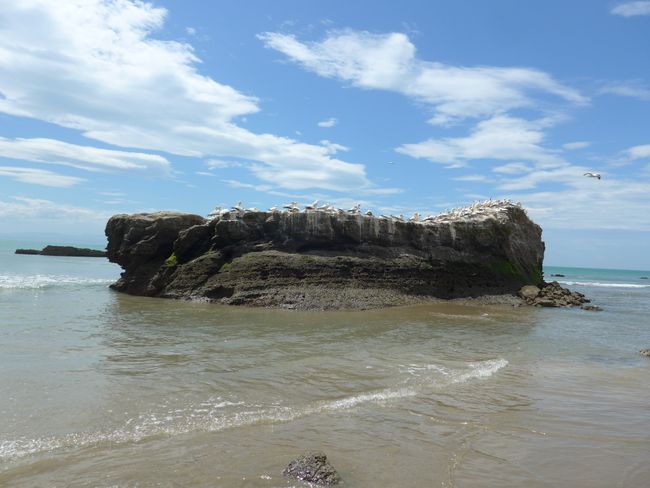
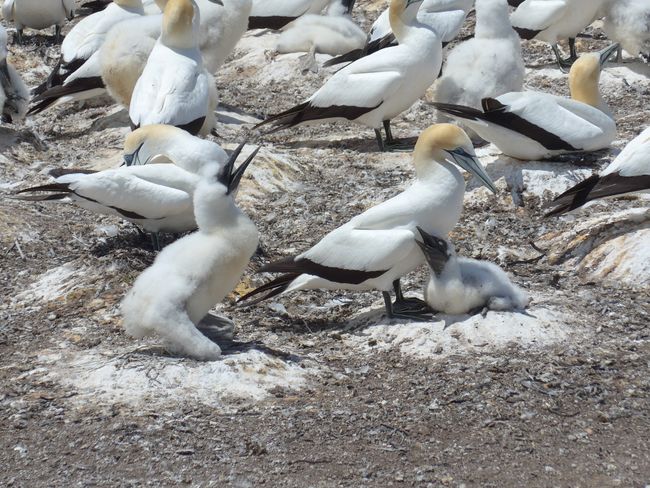

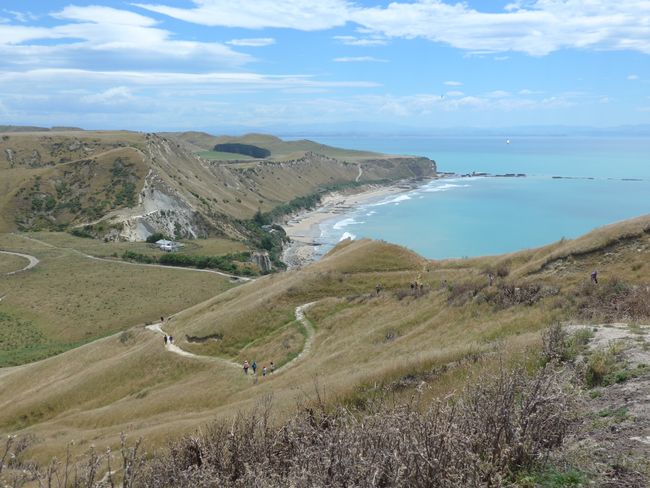
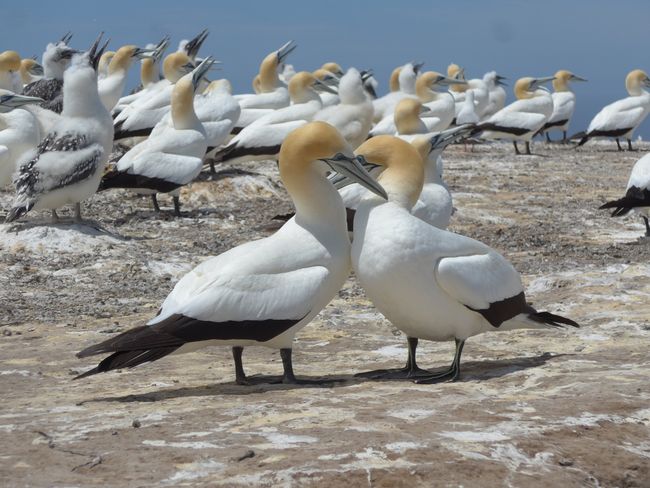
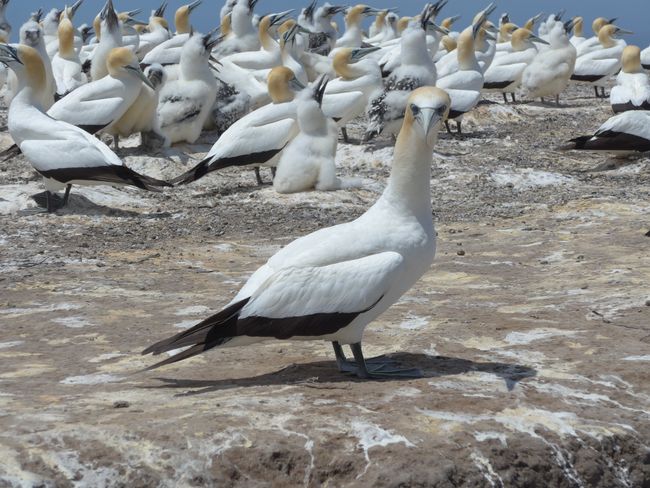
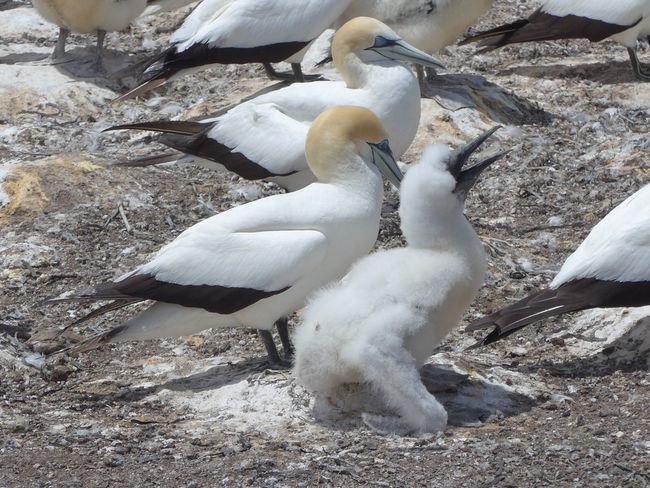
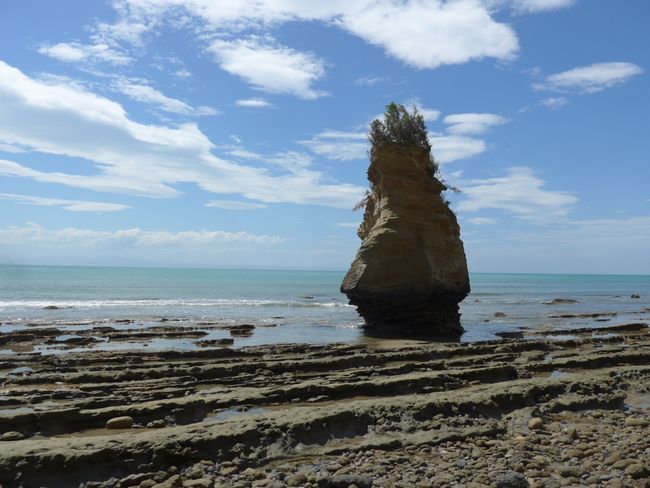
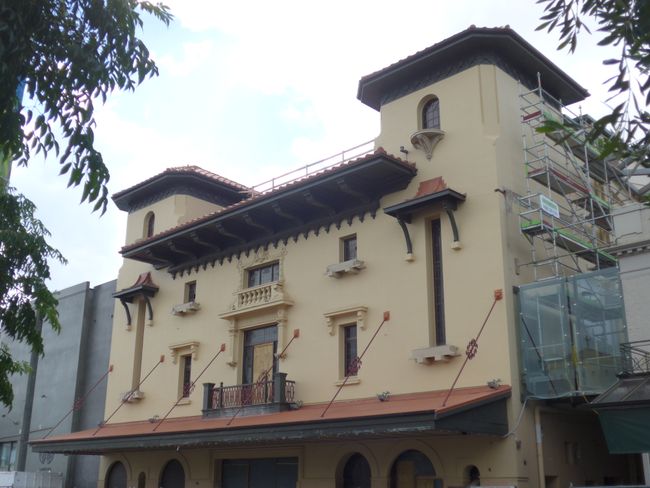
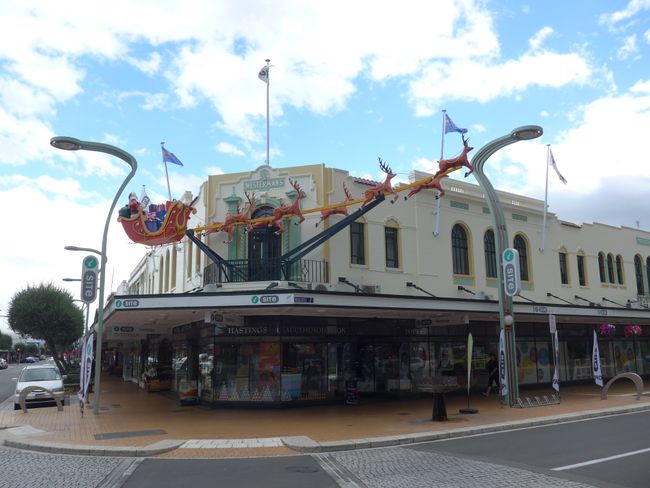
Subscribe to Newsletter
First, we drove to the capital of Hawke's Bay province. Napier was heavily devastated by an earthquake and subsequent fire in 1931.
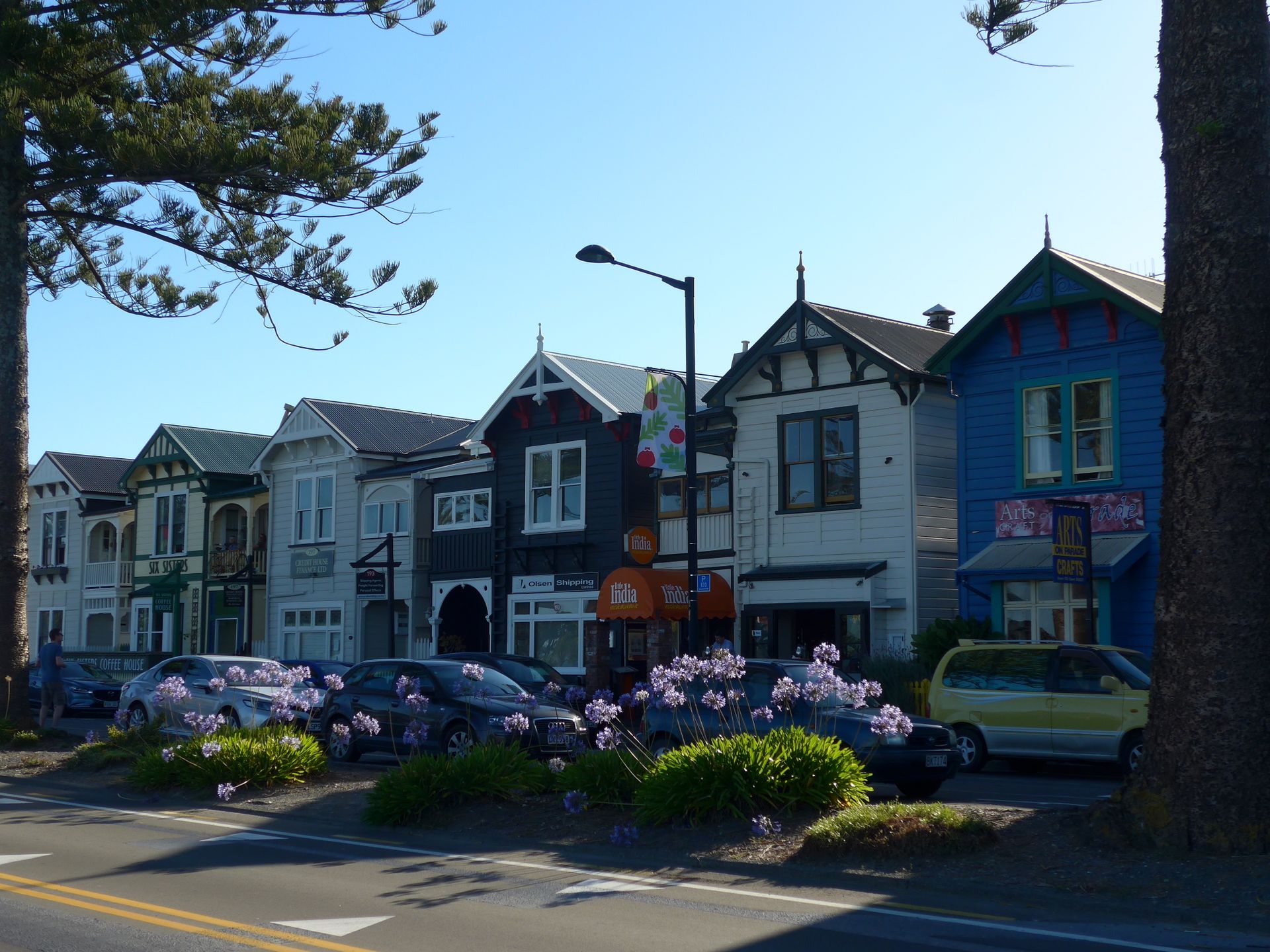
Many buildings were rebuilt in the Art Deco style, for which the city is known today.
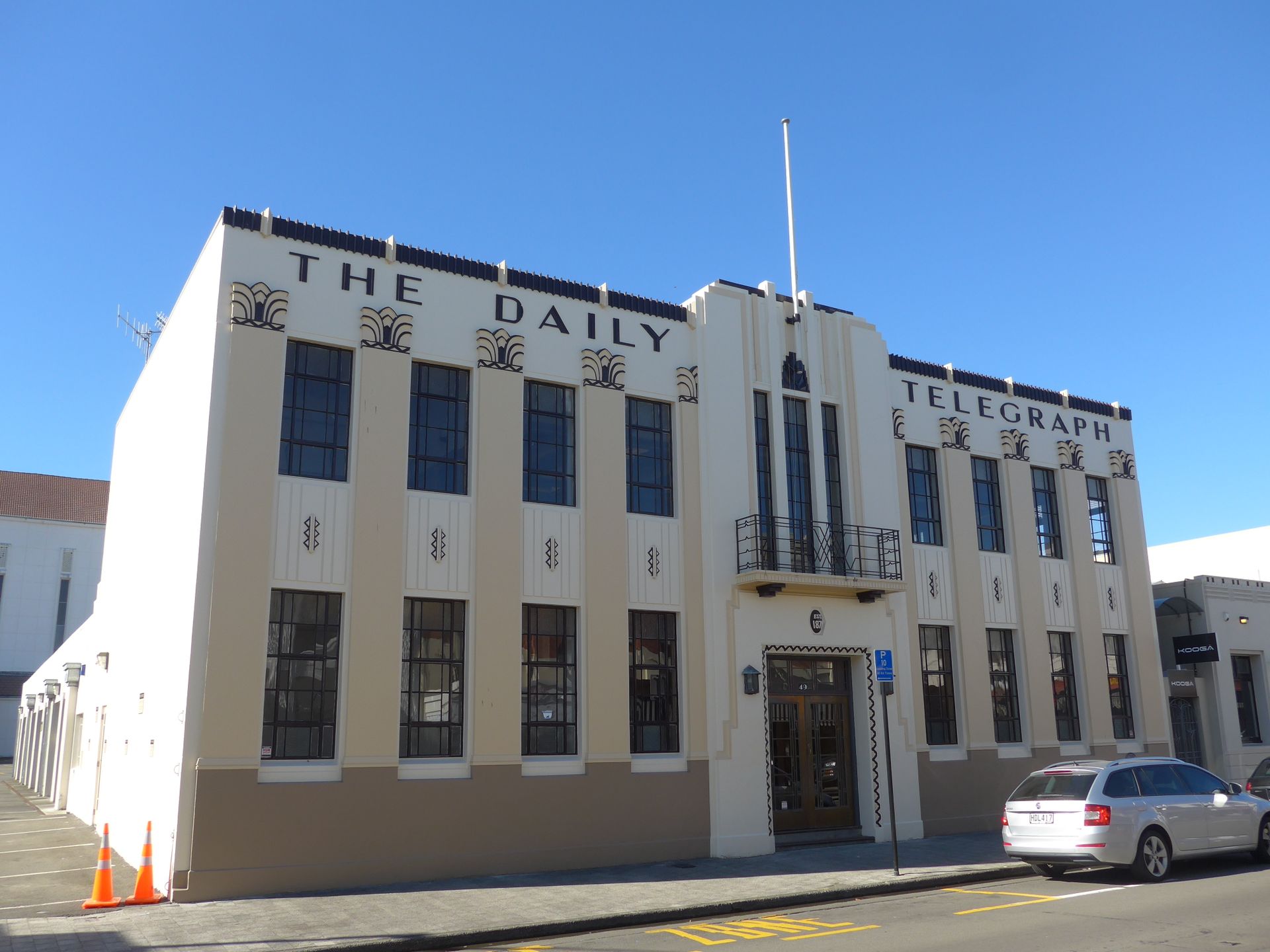
Initially, we strolled from our parking space right by the water along the Marine Parade, a well-designed promenade, to the city center.
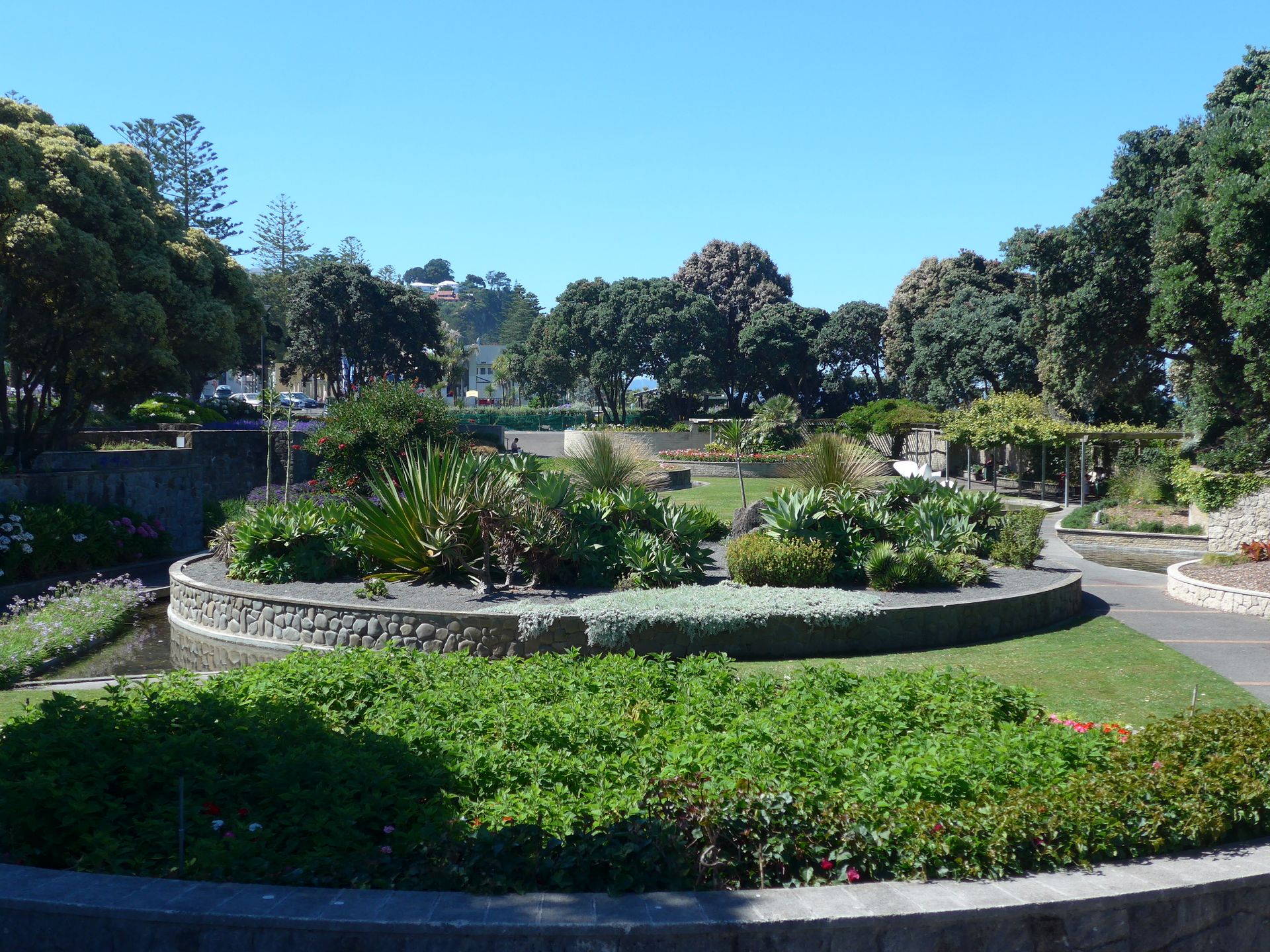
There were really some nice buildings there. Unfortunately, in the shopping street, they had covered them with huge, ugly canopies, so you could no longer see the facades completely.

The next morning, we drove to the Bluff Hill viewpoint, which unfortunately did not offer such a beautiful view of the city as hoped. Instead, we saw the container, timber, and cruise ship harbor. Loud party music could be heard from a cruise ship (although it was only 9 a.m.).
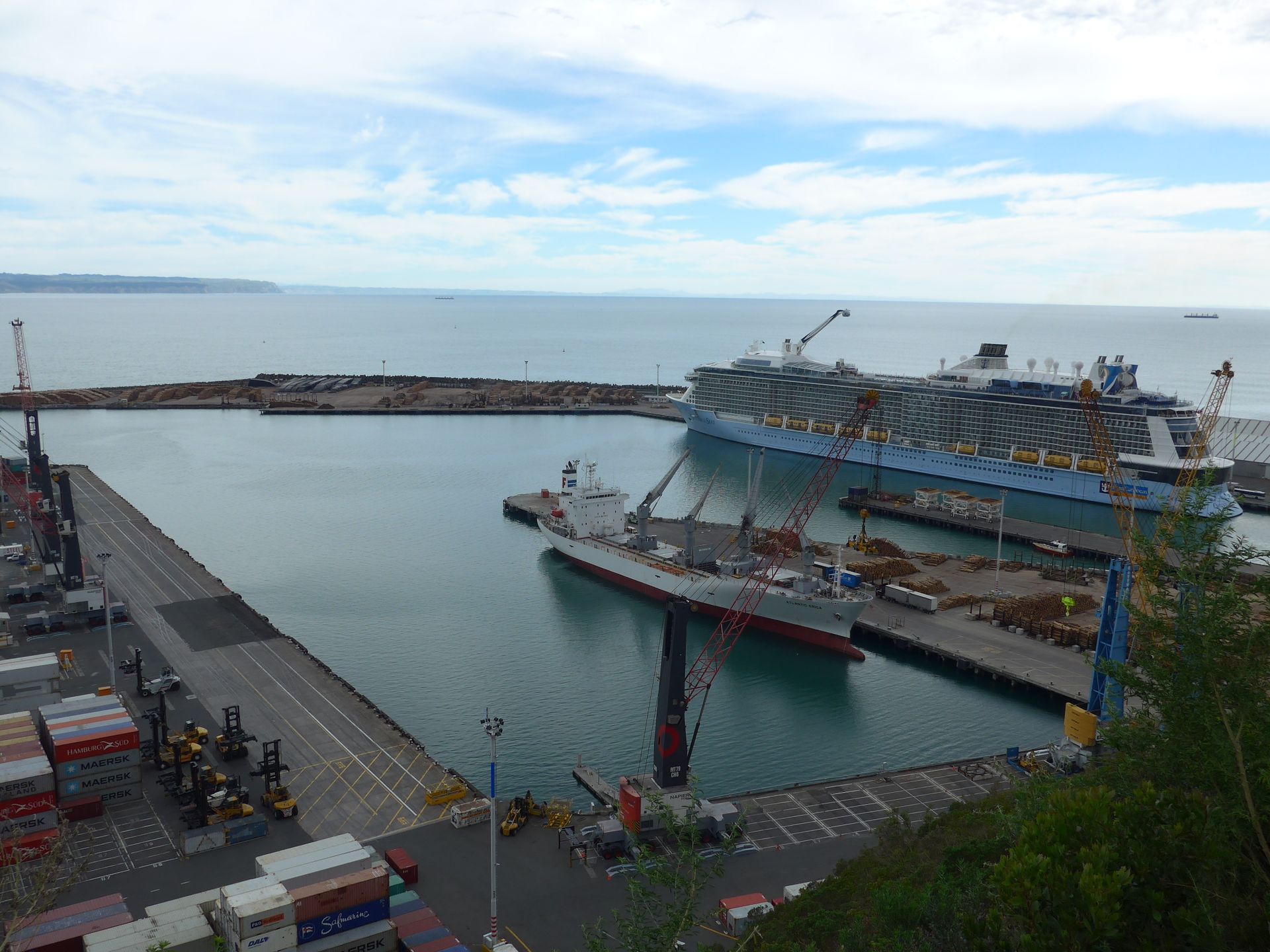
We had to walk the last part up Bluff Hill because the road was closed. The signs said "Event" and two ladies only let residents pass. When we asked, they explained that in the summer, the road is closed because of tourists. They would block the narrow streets on their way to the cruise ship lookout... And so two jobs were created again.
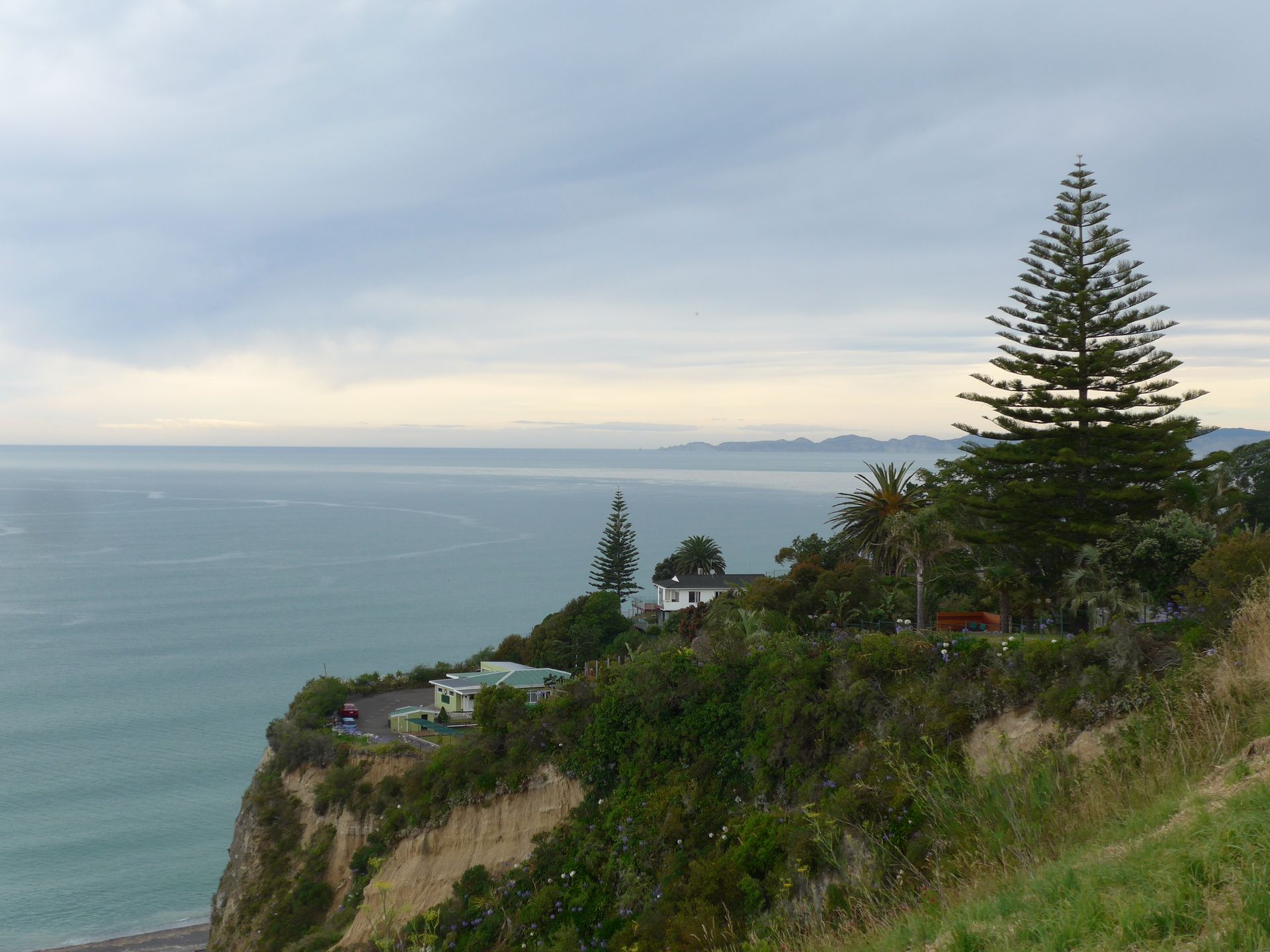
View from Bluff Hill
To visit Cape Kidnapper, we booked a tour and thus gave up on the 19 km hike.

We drove on a trailer pulled by a tractor along the beach. We also had to go through the water at times and had to pull up our legs to avoid getting wet.

Some tractors with trailers also got stuck in the sand. Then everyone had to get off so that it could start with less weight. Fortunately, our driver managed all the difficult spots, so we could stay seated.

On the way, we already saw a colony of gannets that had settled on rocks by the beach to raise their young.

During the breeding season from July to October, this area is closed to visitors. But now the young ones had hatched and were loudly calling for their parents (and food).

At the end of the beach that we could drive on, a hiking trail led to another colony. The path was steep uphill, which was a bit tiring in the now warm weather.
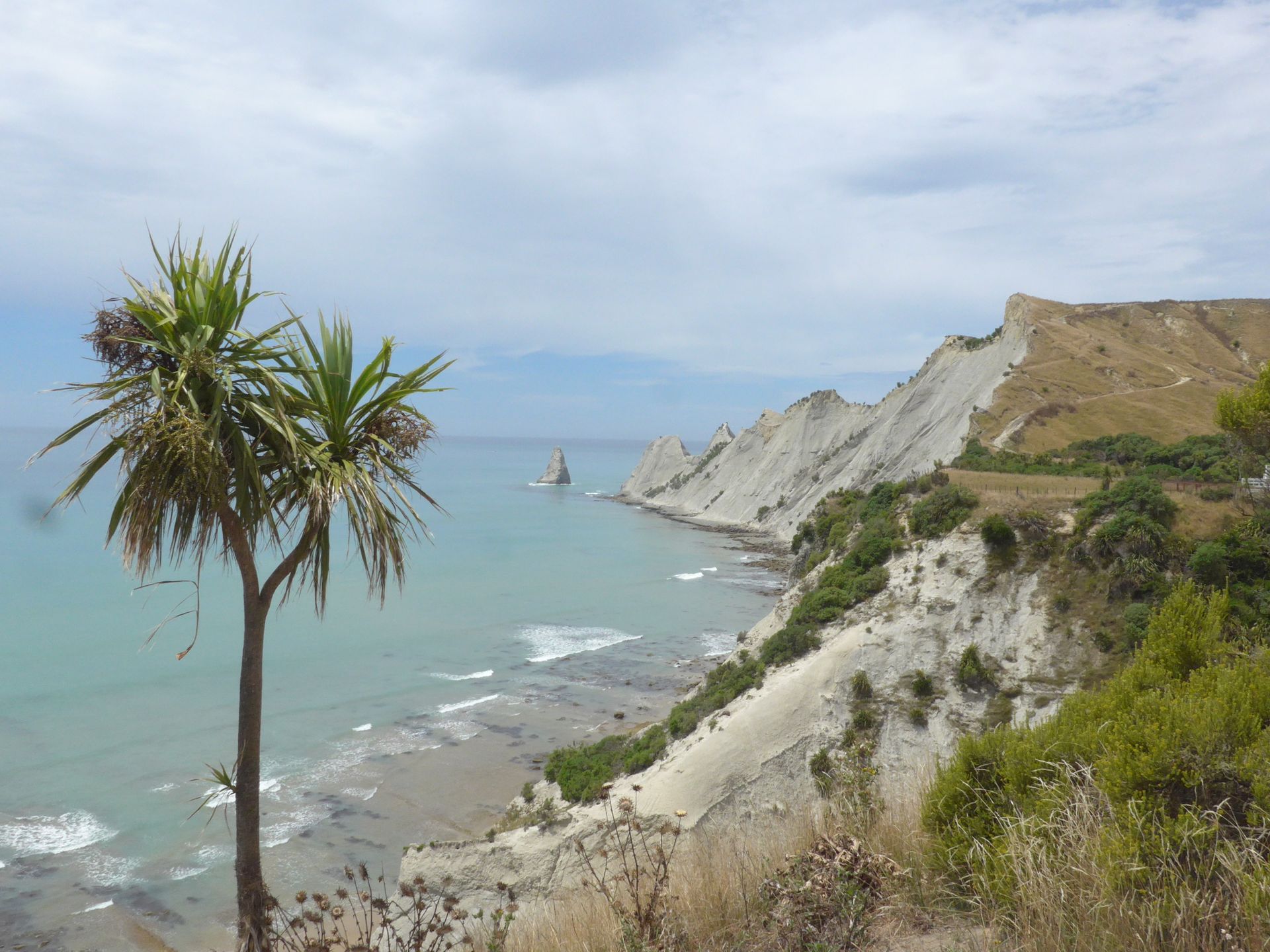
But we saw the birds with their young up close in a large colony.

The gannets return here every year to breed.

When the chicks are large enough to fly, they migrate to Australia. They only make this journey once in their lifetime. If they survive (which most of them do not), they return to New Zealand and find a partner to build a nest with.

After the hike back and a picnic with a sea view, we returned on our tractor trailer.



Subscribe to Newsletter
Freagairt

Aithisgean siubhail Na Seulan Nuadh
